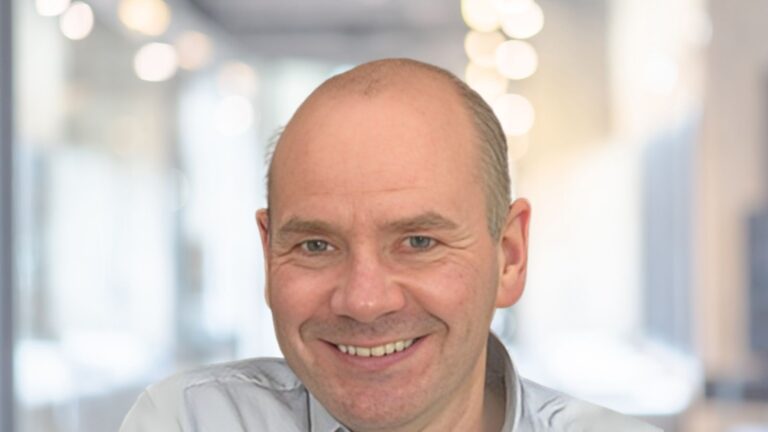I’m Rob, an experienced and proactive business owner with a deep understanding of technology and data protection. In January 2023, I launched BackupLABS, a pioneering company providing robust solutions to back up and protect SaaS app data, including Trello, GitHub, and GitLab. Prior to that, I founded BackupVault in 2004, an industry-leading provider of automatic and secure UK cloud backup services. We grew to serve over 1,000 business clients and protected more than 20,000 Microsoft 365 mailboxes.
Company: BackupVault
We are thrilled to have you join us today, welcome to ValiantCEO Magazine’s exclusive interview! Let’s start off with a little introduction. Tell our readers a bit about yourself and your company
Rob Stevenson: I’m Rob, an experienced and proactive business owner with a deep understanding of technology and data protection. In January 2023, I launched BackupLABS, a pioneering company providing robust solutions to back up and protect SaaS app data, including Trello, GitHub, and GitLab. Prior to that, I founded BackupVault in 2004, an industry-leading provider of automatic and secure UK cloud backup services. We grew to serve over 1,000 business clients and protected more than 20,000 Microsoft 365 mailboxes.
Can you share a time when your business faced a significant challenge? How did you navigate through it?
Rob Stevenson: One major challenge we faced was during the implementation of GDPR in 2018. As a cloud backup provider, we handle vast amounts of sensitive data, and GDPR brought new regulations on data protection and privacy. Initially, our existing systems and processes were not fully compliant, which posed a risk to our business and our clients. To tackle this, we initiated a comprehensive audit of our data management practices, which involved consulting with legal and compliance experts. We re-engineered our data handling procedures, upgraded our technology stack, and introduced new security measures. We also conducted extensive training for our staff to ensure everyone understood the new requirements. This approach not only helped us achieve compliance but also strengthened our position as a trusted data protection provider, demonstrating our commitment to safeguarding client data.
How has a failure or apparent failure set you up for later success?
Rob Stevenson: In the early 2000s, we faced significant challenges with our initial backup solutions, which struggled to scale effectively with our growing client base. This experience exposed limitations in our technology and highlighted the need for a more robust solution. Rather than seeing this as a failure, we used it as a catalyst for innovation. We invested heavily in research and development, working closely with engineers to design a new, scalable backup system that could handle larger volumes of data with greater efficiency. This investment paid off by enhancing our service capabilities and reliability, positioning BackupVault as a leader in the cloud backup industry and setting the stage for our continued growth and success.
How do you build a resilient team? What qualities do you look for in your team members?
Rob Stevenson: Building a resilient team involves more than just hiring skilled professionals; it requires fostering a supportive and adaptive work environment. We prioritize hiring individuals who are not only technically proficient but also exhibit qualities such as adaptability, problem-solving skills, and emotional intelligence. Resilient team members are those who can handle stress, view challenges as opportunities for growth, and maintain a positive attitude under pressure. We also emphasize the importance of teamwork and open communication, encouraging team members to collaborate and support one another. Regular training and professional development are key to ensuring our team stays engaged and prepared for evolving challenges.
How do you maintain your personal resilience during tough times?
Rob Stevenson: Maintaining personal resilience involves a combination of proactive strategies and self-care. I make a conscious effort to stay physically active and maintain a healthy lifestyle, as this helps manage stress and boost my energy levels. I also set aside time for activities that help me unwind and recharge, such as hobbies and spending time with family. On a professional level, I focus on maintaining a clear vision and strategic mindset, regularly reviewing our goals and progress. This helps me stay focused and motivated, even during periods of intense pressure. Furthermore, seeking support from mentors and peers gives valuable perspective and advice, further reinforcing my resilience.
What strategies do you use to manage stress and maintain focus during a crisis?
Rob Stevenson: Effective stress management and focus during a crisis require a structured approach. I rely on prioritizing tasks and setting clear, achievable goals to maintain focus. Breaking down larger problems into manageable steps helps in addressing them systematically. I also practice mindfulness and take regular breaks to avoid burnout. Delegating responsibilities and relying on a strong team ensures that no single person is overwhelmed. Communication is key; I keep open lines of dialogue with my team to ensure everyone is aligned and informed, which helps in reducing uncertainty and stress.
How do you communicate with your team during a crisis?
Rob Stevenson: During a crisis, clear and transparent communication is essential. I ensure that the entire team is kept informed through regular updates and briefings. I use various channels, such as team meetings, emails, and internal messaging platforms, to provide timely information about the situation and our response plans. It’s important to address concerns openly and provide reassurance. I also encourage team members to voice their concerns and feedback, which helps in identifying potential issues and maintaining morale. Keeping communication channels open fosters a sense of unity and ensures that everyone is working towards common objectives.
What advice would you give to other CEOs on building resilience in their organizations?
Rob Stevenson: To build resilience, focus on creating a culture that embraces change and views challenges as opportunities for growth. Invest in your team’s development, emphasizing skills such as adaptability, problem-solving, and effective communication. Ensure that your organization has robust contingency plans and regularly reviews them to adapt to new risks. Encouraging a culture of transparency and support helps in maintaining morale and trust, which are crucial during tough times. I believe leading by example and demonstrating resilience in your actions can inspire and motivate your team.
How do you prepare your business for potential future crises?
Rob Stevenson: Preparing for future crises involves a proactive approach to risk management. We regularly conduct risk assessments to identify potential threats and vulnerabilities. Based on these assessments, we develop and update contingency plans that outline procedures for various scenarios. This includes investing in scalable technology solutions, establishing backup systems, and training staff on crisis management protocols. We also build strong relationships with industry partners and maintain a network of resources that can be called upon if needed. Regular simulations and drills ensure that our team is familiar with the response plans and ready to act swiftly in a crisis.
What’s the most important lesson you’ve learned about leadership in times of crisis?
Rob Stevenson: The most important lesson I’ve learned is that effective leadership during a crisis requires a balance of decisiveness and empathy. It’s crucial to make informed decisions swiftly to address the situation, but it’s equally important to understand and support your team’s emotional and practical needs. Leading with a clear vision and maintaining open communication helps guide the organization through challenges while fostering trust and resilience among team members. Demonstrating confidence and compassion during tough times reinforces the team’s commitment and helps navigate the crisis more effectively.






